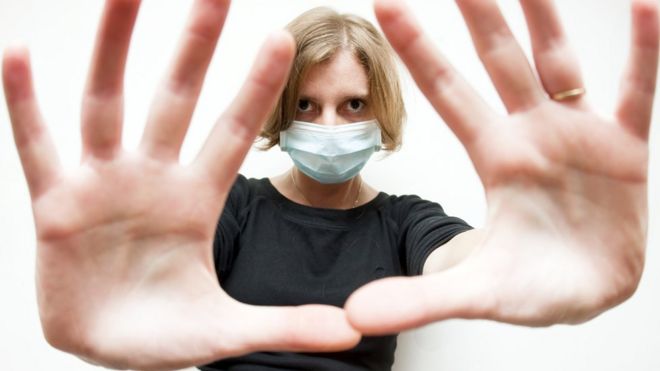
Everyone is surrounded by a unique "cloud" of millions of their own bacteria, according to scientists at the University of Oregon in the US.
Walk through someone else's cloud, and it will "rain" bacteria on your skin and be breathed into your lungs.
The study on 11 people, published in the journal PeerJ, showed it was possible to identify people from their microbial miasma.
One microbiologist said the findings were simply "gross".
Studies have already shown that our microbiome - the collection of bacteria, viruses and fungi that live on our skin and in our bodies - outnumbers our own cells 10-to-one.
These can be spread through direct contact, airborne emissions and shed skin cells in dust.
Could you take a step back please?
People were kept in a sealed chamber for four hours with air pumped in through a filter to prevent contamination. Dishes and filters inside the chamber collected samples from the emanating cloud.
Scientists then analysed the bacteria collected.
One of the researchers, Dr James Meadow, said: "We expected that we would be able to detect the human microbiome in the air around a person, but we were surprised to find that we could identify most of the occupants just by sampling their microbial cloud."
Dr Ben Neuman, a microbiologist from the University of Reading, told the BBC: "You can smell someone's BO [body odour], and now you know these are all the things crawling on you - how marvellous.
"It's one of those things that make you feel sick about living next to other people, if you knew it went on."
 Thinkstock
Thinkstock
He said the "gross" findings "make sense" in light of the growing understanding of the microbiome and showed that by exchanging bacteria we "are changing each other all the time".
Dr Neuman argued it would be useful to know which bacteria were able to "fly" through the air, but there was no reason to be worried about any health threat.
So should we all take extra showers?
"It wouldn't help, we just need to get over it or move into outer space," he added.
Groups of bacteria in the cloud included Streptococcus, which is common in the mouth, and the skin bugs Propionibacterium and Corynebacterium.
The researchers argue the mix may have a "forensic application" to detect whether someone had passed through a room.
However, it is not clear how much someone's microbial cloud changes over time.
Adam Altrichter, a research assistant on the project, told the BBC News website: "There is a germaphobe aspect to this, but we need to understand that we're not sterile and this is something completely natural and healthy."
He said the size of someone's cloud was still untested, but was likely to be a few feet.



No comments:
Post a Comment